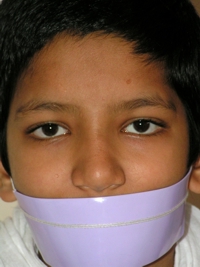
Interview with Muni Anushasan Kumar was taken during November 2008 in Jaipur, Rajasthan, India
Formerly Ankit, now Nichiketa Muni Anuśāsan Kumār, was born on 13th March 1997 in Mumbai. He took diksha when he was not yet ten years of age, on 2nd May 2007, in Samed in Udaipur district, Rajasthan. So now he is twelve.
Though he speaks some English too, Muni Anuśāsan as yet prefers to speak in Hindi, and we tried to retell his words or their essence to English.
- Can you please tell us something about yourself?
I came at the age of 7 to Āchārya Mahāpragya to request diksha, but the rules do not allow that before someone is nine years old. Two years I lived among the monks independently and I was taken care of by Ratan Lal Chopra (a householder). I went wherever Āchārya Mahāpragya went. Even though I was not yet a monk I travelled on foot only. I was very naughty and there was a lot of exposure to outside. When I became a monk I became serious.
In most cases children have to convince their parents if they wish to become a monk, but in my case my parents stimulated and prepared me.
- And your brother?
My brother is now the youngest monk in the group and has been given the name Muni Mṛddhu. First he said he did not want to become a monk, but inspired by me one day he started by not eating after sunset, and the next day he said he also wanted to become a monk. I was very pleased with his decision.
- Why did you want to become a monk?
I want to neutralize my karmas, and I want to reach from this ātma to paramātma. - How did you know about concepts like ātma and paramātma at the age of seven?
My mother inspired me and she explained me these concepts. - What karmas do you want to neutralize?
All karmas.[1]
- Which karmas in particular would you like to work on?
I will reduce my mohanīya karma [attachment]. Recently we all went to Jantar Mantar [the famous, centuries old astrolabe in Jaipur]. When I was there I liked everything, but I feel attachment also. - What is ātman, and what is paramātman?
Ātman is the general soul, paramātman is the very highest soul. We all have one soul and as a monk it is our sadhana [ practice] to become paramātman. - What is karuna [compassion]?
Karuna is part of non-violence [ahimsā], not to hurt anybody. Practical compassion is only at the social platform, not at a monk’s platform[2]
- Do you often think of your parents?
No, Āchārya Mahāpragya is our parent. - Do you have any special friend here, who is your best friend?
I don’t have special friends. All the monks are my friends. For others we do not use the word “friend” because they are a different category. - Where were you thinking of this morning?
I was thinking of Yuvāchārya Śrī walking back from Ramnivas Garden.[3]
- Where did you go?
Rambag Palace; we saw the king’s personal train; the stadium, the Secretariat, the road, and the crowd. - What was the very best thing during the excursion?
The old train in the Palace. - What will you do when you are growing up?
I will reduce my karmas. It is too early now to ask this question. - Are you ever alone?
No, I am never alone, always other monks are around. - For me [the interviewer] it would be the most difficult thing to wear a mouth cover. How can you bear that?
In the beginning it seems difficult, but one gets used to it. - What do you want to say to the people in the world, and to the readers of our website?
Recite some mantra
Be vegetarian - What would you say to the President Obama of America?
I don’t know; I am too small for that. - What would you say to adults?
Be religious
Work towards spiritual awakening
Listen to discourses
Don’t be a non-vegetarian - What would you say to children?
Same.
Finally Muni Anuśāsan showed us his merit card - which is like the accumulation of money for other people. Demerit you can get for example when you are not careful with your clothing. If for example a dead ant is found between your cloths this means that you have not been careful enough, and get demerit points. But Muni Anuśāsans merit card looks very good.
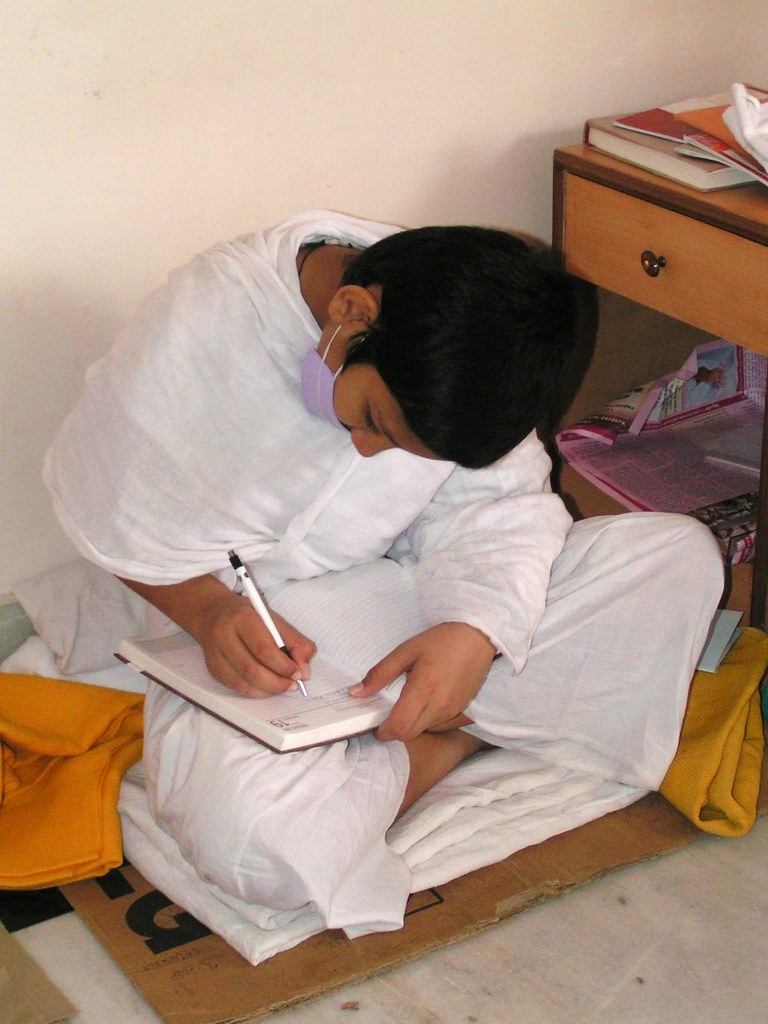
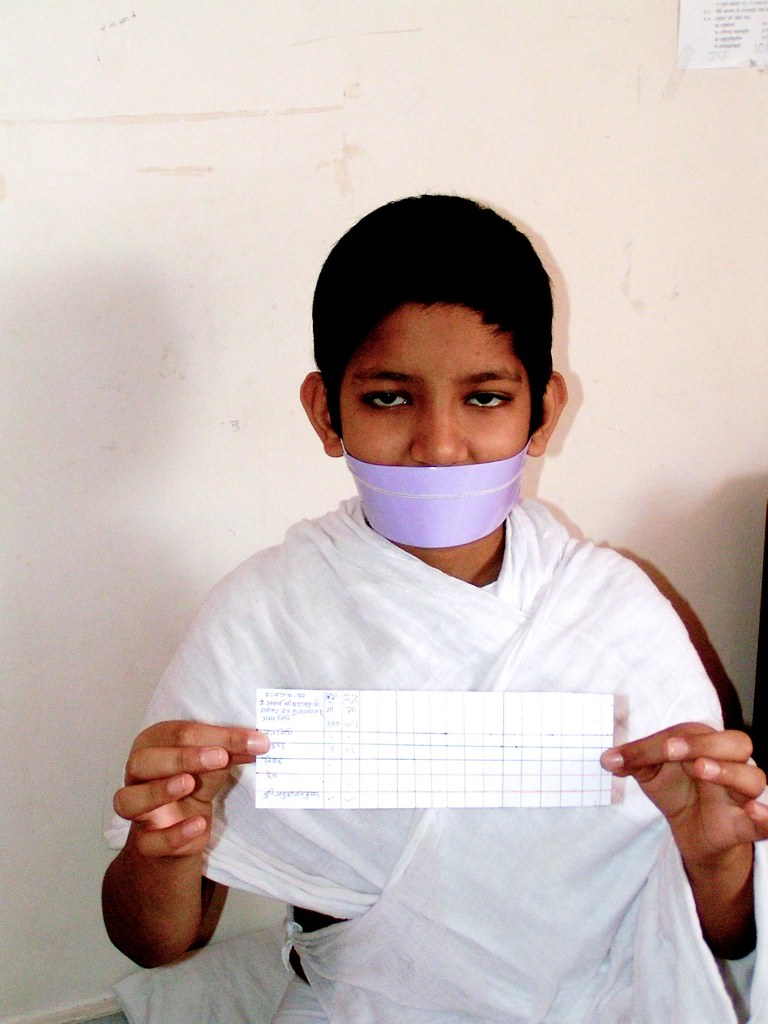
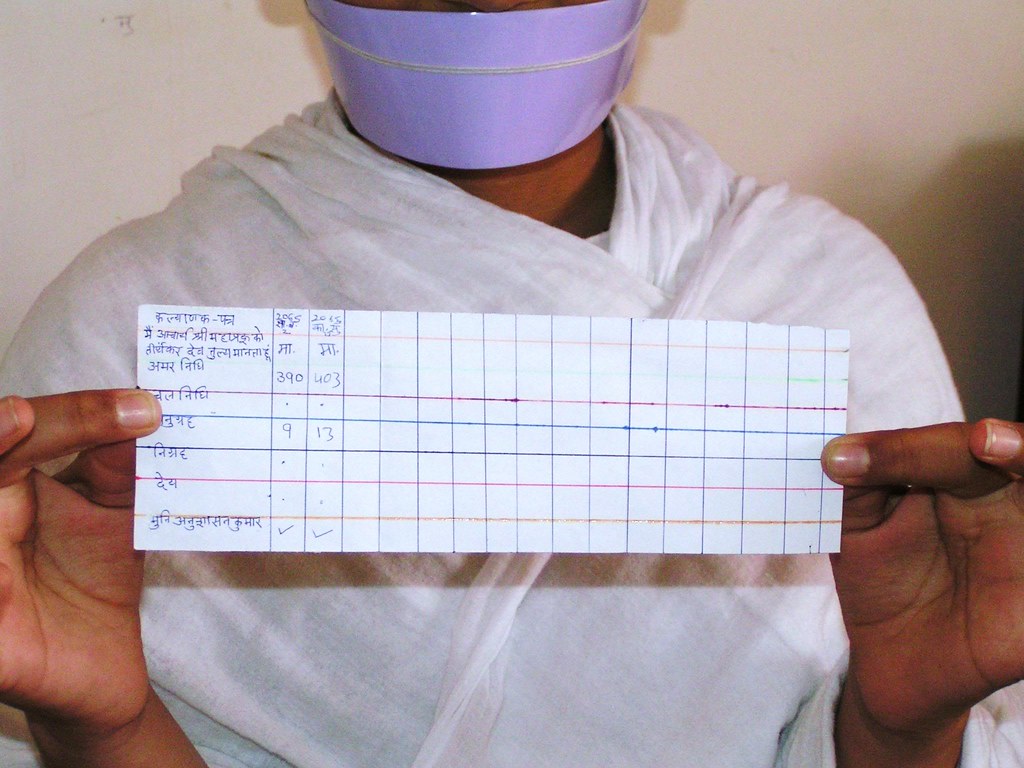
Explanation: Jainism knows two main categories of karma: those karmas which are obstructive, and those which influence life, but are not obstructive. To the first category belong those which are obstructive to clear knowledge; those which obscure clear sense perception (including clairvoyance and omniscient perception); those which delude right inside and right conduct; and those obstructing one’s energy, and therefore one’s capability to do charity, experiencing joy, power, etc. The second, non-obstructive category includes those which bring forth our feelings, determine our lifespan, the type of form a soul will become when in a body, and the family and circumstances in which one is born.
 Dr. Rudi Jansma
Dr. Rudi Jansma
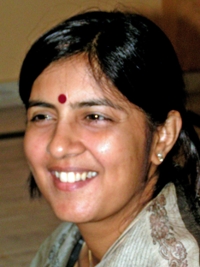 Shivani Bothra
Shivani Bothra